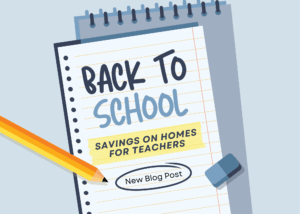As more and more people across the country get confined to their homes for the near future, clutter is going to happen. Parents are working from home. Kids are schooling from home. Stacks are piling up. Before you know it, you’re surrounded by clutter. This week we bring you tips to help you declutter your home:
1. Start Small
Start with the smallest decluttering project first. It will help you feel accomplished and provide momentum to continue.
2. One Room at a Time
Focus on one room at a time. Otherwise you’re just moving clutter from one room to another and never actually decluttering anything.
3. Separate Treasures from Trash
Start with one or two trash bags and laundry baskets or plastic totes. Put trash in the trash bag and items you are donating in a tote. Items you plan to keep but don’t belong in that room should be placed in a separate basket or tote.
4. Don’t Devote Your Whole Day
Declutter for 15 to 30- minutes a day. Decide how long you will spend doing this each day and commit to that time. Set yourself a timer and when the timer sounds, you’re done. This keeps you focused for short periods of time and keeps you from getting overwhelmed.
5. You May Get Emotional
When you declutter your home, it can be a very emotional experience. We often hang on to items longer than we should because of their connection to someone or a special event in our lives. Ask yourself if taking a picture of it would preserve the memories it carries. Or maybe donating it to someone who will love it as much as you or your child/family did will help you let it go. Consider your local Salvation Army or Goodwill.
6. It’s OK to Deliberate on Items
If you’re still struggling to part with something, create a “maybe box.” Once full, hide the box out of site. If you haven’t thought of those items for several months, it’s time to let them go.
7. Learn to Let Go
Don’t hold on to something because you may need it someday. If you haven’t used it in at least six months, there’s a good chance you won’t ever use it. If you haven’t used it in over a year, you don’t need it.
8. If It Doesn’t Fit…Toss It!
Don’t hang on to clothes you think you may fit into again someday. While it’s good to work towards your personal health goals it could be donated to someone who needs it now more than you do.
9. Ditch Duplicates
Maybe two of something is useful. Do you really need 5 staplers or soup ladles? Give duplicates to people who can use them.
10. End the paper trail
Make yourself a simple filing system (i.e. school papers, bills, owner manuals, etc.) Put papers into those folders as soon as they come into the house. Once the folder is full, go through it and discard what you no longer need. Also, consider paperless billing on your regular bills to eliminate mail clutter.
Clutter has a negative impact on our mental well-being, including increased stress levels. When you declutter your home, you aren’t just making your environment more pleasant. You’re improving your health – especially during times like today when we need this boost the most!
Getting your home ready to sell? Shopping for a new home? We can help! Meet our home loan experts.
Do Fed Rate Cuts Really Affect Mortgage Rates?
Fed rate cuts. Do they really affect mortgage rates? Spoiler: it’s not as direct as you might think. You’ve probably heard the news: the Federal Reserve cut interest rates finally. And right after that, someone […]
Savings on Homes for First Responders
You put your life on the line every day to save others. It’s time for you to be the recipient of saving in a different way – saving thousands of dollars on your next home. […]
Back to School Savings on Homes for Teachers
It’s back to school time! As a new school year begins, we want to say thank you. Not just with words, but with real value and real savings for teachers. First Bank Home Loans is […]



